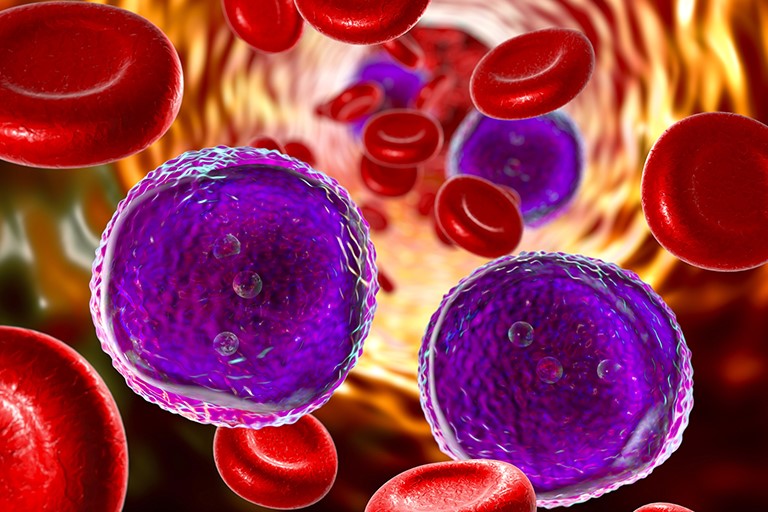
Acute lymphocytic leukaemia: what is it?
Acute lymphocytic leukaemia is a cancer that affects a particular type of white blood cell, the lymphocyte. Lymphocytes fight infections and are produced by the bone marrow, which normally generates enough of them for the body’s needs
Acute lymphocytic leukaemia involves an increased production of mutated lymphocytes, which are generally called lymphoblasts (or leukaemic cells)
Lymphoblasts do not behave in the same way as healthy lymphocytes: they crowd into the blood, bone marrow and other organs, leaving no room for other blood cells and causing the entire organism to decay.
The causes of Acute Lymphocytic Leukaemia are unknown
However, several research studies have identified a number of risk factors:
- exposure to large amounts of radiation and certain chemical and pharmaceutical agents;
- presence of Down syndrome in the subject
- presence in the family of brothers or sisters with leukaemia.
Leukaemia most frequently affects children under the age of 10 or adults over 50.
Symptoms of acute lymphoblastic leukaemia
Symptoms of acute lymphocytic leukaemia are lassitude, chronic fatigue, weakness, dizziness, nausea, difficulty breathing, bruising, bleeding, presence of blood in the urine, abnormalities in the menstrual cycle, headache, fever, bone or joint pain, enlargement of the liver or other internal organs (resulting in abdominal pain), enlarged lymph nodes, weight loss.
In the case of injuries, more abundant and longer-lasting bleeding than usual may occur and infections, even minor ones, are more frequent.
Diagnosis can be made through blood tests or bone marrow biopsy.
Treatment
Acute lymphocytic leukaemia should be treated as early as possible to increase the chances of disease remission and a return to normal blood cell counts.
The main treatment for leukaemia is chemotherapy, used to destroy lymphoblasts and prevent proliferation.
Radiotherapy may also be used.
In cases of disease recurrence, a bone marrow transplant is necessary.
Read Also:
Emergency Live Even More…Live: Download The New Free App Of Your Newspaper For IOS And Android
Leukaemia: The Types, Symptoms And Most Innovative Treatments
Lymphoma: 10 Alarm Bells Not To Be Underestimated
Non-Hodgkin’s Lymphoma: Symptoms, Diagnosis And Treatment Of A Heterogeneous Group Of Tumours
CAR-T: An Innovative Therapy For Lymphomas
Acute Lymphoblastic Leukaemia: Long-Term Outcomes Described For Childhood ALL Survivors
Colour Changes In The Urine: When To Consult A Doctor
Why Are There Leukocytes In My Urine?


